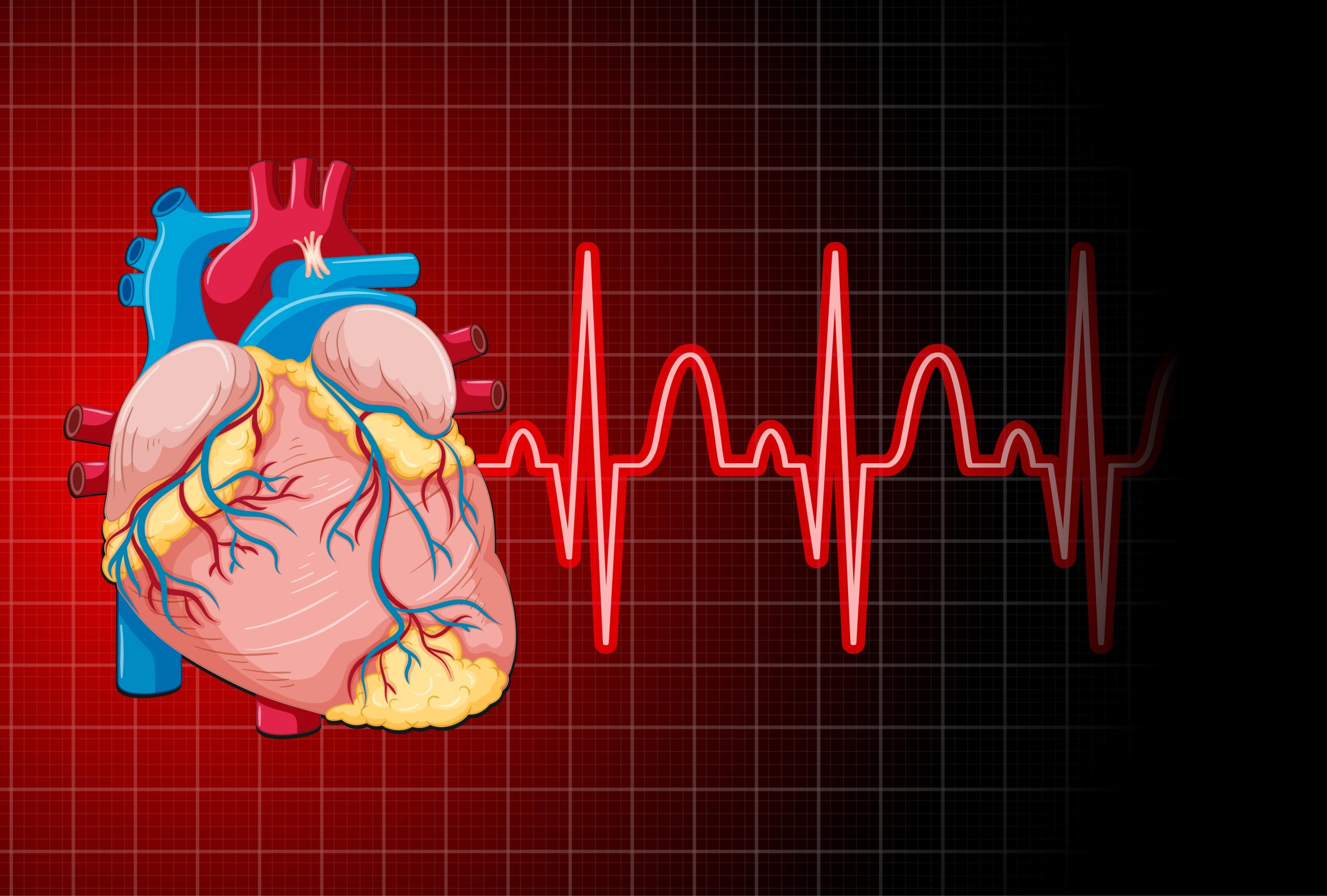The Duty of Cardiology in Precautionary Health And Wellness and Health Solutions
Cardiology is progressively identified for its pivotal role in preventative health and health services. By stressing positive techniques, cardiologists intend to lower the incidence of heart diseases. This approach incorporates threat evaluations, way of life changes, and regular testings. Via these efforts, people are encouraged to take control of their heart health and wellness. However, the assimilation of modern technology and cooperation with various other health care suppliers raises important questions regarding the future of preventative treatment. What might this development entail?

Recognizing Preventative Cardiology
Comprehending preventative cardiology entails recognizing its crucial duty in minimizing cardiovascular illness risk via positive measures. This branch of medication stresses the relevance of way of life modifications, consisting of anxiety, exercise, and diet regimen monitoring, to protect against heart-related issues before they occur. It supports for normal health and wellness screenings and education and learning to encourage individuals in making informed health choices.Preventative cardiology also encompasses the identification of threat factors such as high blood pressure, diabetes mellitus, and high cholesterol, prompting individuals to take on healthier behaviors - Cardiology care. By concentrating on avoidance rather than reaction, this method not just enhances specific wellness end results yet also relieves the overall concern on health care systems. On top of that, it promotes collaboration amongst healthcare communities, suppliers, and people, cultivating an alternative method to heart health and wellness. Eventually, understanding preventative cardiology inspires a shift towards a proactive frame of mind, focusing on long-lasting health and wellness and well-being
Danger Analysis and Monitoring
Danger evaluation is essential in recognizing cardio risks that can cause significant health and wellness issues. Reliable management of these threats often entails carrying out lifestyle modification strategies, such as enhanced diet plan and boosted physical activity. By comprehending and resolving these variables, individuals can significantly decrease their likelihood of developing cardiovascular conditions.
Recognizing Cardiovascular Risks
Although countless factors add to cardiovascular health, identifying cardiovascular threats is important for effective avoidance and monitoring. Cardiovascular threat evaluation entails evaluating numerous elements, consisting of family members history, sex, way of life, and age routines such as cigarette smoking and physical inactivity. In addition, health and wellness conditions like high blood pressure, diabetic issues, and high cholesterol significantly influence a person's danger profile. Health care professionals make use of tools such as threat calculators and biomarker tests to quantify these dangers and stratify clients as necessary. Early identification makes it possible for targeted interventions, leading individuals toward ideal administration strategies. By identifying these threats, cardiologists can work together with patients to develop tailored plans that stress monitoring and positive treatment, eventually lowering the likelihood of negative cardio events.
Way Of Living Modification Methods
Efficient way of living modification methods play an essential role in managing cardiovascular health and wellness and reducing involved risks. These strategies include nutritional modifications, enhanced physical task, and smoking cigarettes cessation. A heart-healthy diet regimen abundant in fruits, vegetables, entire grains, and lean healthy proteins can significantly reduce cholesterol levels and blood stress. Regular exercise, such as aerobic workouts, enhances and enhances the heart blood circulation. In addition, giving up smoking reduces the risk of heart problem and enhances general wellness. Health care specialists often employ threat assessment devices to tailor these alterations to specific demands efficiently. By incorporating lifestyle become routine care, cardiologists can equip people to take charge of their heart wellness, inevitably bring about improved results and lowered healthcare prices.
Way Of Living Alterations for Heart Health
To preserve perfect heart health and wellness, people need to embrace a variety of lifestyle alterations that significantly minimize the chance of cardiovascular illness. A well balanced diet regimen rich in fruits, vegetables, whole grains, and lean healthy proteins is necessary. Decreasing hydrogenated fats, trans fats, and salt consumption can substantially reduce cholesterol levels and blood stress. Regular exercise, such as brisk strolling or cycling for a minimum of 150 minutes weekly, also plays a substantial function in reinforcing the heart and enhancing circulation.Additionally, taking care of anxiety through methods like mindfulness and meditation can have a positive influence on heart health and wellness. Staying clear of tobacco products and limiting alcohol usage further add to a much healthier cardio system. Maintaining a healthy weight is critical, as excessive weight is a major threat factor for cardiovascular disease. By including these lifestyle adjustments, individuals can cultivate not just their heart health however additionally their overall wellness, bring about a more dynamic and energetic life.
The Value of Normal Screenings
Along with way of life alterations, regular screenings play a crucial role in maintaining heart health and wellness and these details protecting against cardiovascular illness. These analyses are substantial for recognizing risk elements such as hypertension, high cholesterol, and diabetic issues, which can lead to major difficulties if left untreated. Cardiologists suggest routine evaluations to monitor heart function and discover irregularities early, permitting for timely intervention.Screenings, which might include blood echocardiograms, electrocardiograms, and tests, offer critical information for customized treatment strategies. This positive technique encourages people to make informed decisions regarding their wellness, improving overall health. In addition, regular check-ups cultivate a more powerful doctor-patient connection, encouraging open discussion regarding heart health and wellness concerns.
Integrating Modern Technology in Precautionary Treatment
Embracing technology has changed preventative treatment in cardiology, offering cutting-edge devices that enhance patient monitoring and interaction. Wearable devices, such as smartwatches and fitness trackers, make it possible for individuals to monitor their heart price, activity levels, and total wellness metrics in real-time. These gadgets not just Get the facts supply prompt comments yet additionally promote information sharing with doctor, permitting for timely interventions when necessary.Additionally, telemedicine has actually become a famous attribute in cardiology, allowing remote appointments and follow-ups. This availability ensures that clients can obtain care without the obstacles of travel and time restraints. Mobile health and wellness applications more assistance preventative steps by offering individualized understandings and reminders for medication adherence, way of living adjustments, and arranged screenings.
Patient Education and Empowerment
Empowerment via education is necessary in the domain of preventative cardiology, as notified patients are extra most likely to participate in aggressive wellness behaviors. By recognizing their cardio wellness, clients can make educated choices relating to way of living adjustments and adherence to therapy plans. Educational campaigns, consisting of workshops, informational pamphlets, and on-line resources, offer to enhance individual expertise regarding risk factors such as hypertension, cholesterol degrees, and the importance of normal exercise.Moreover, empowering people promotes a collective method to health management. When clients are mindful of their problems and the effects of their options, they are most likely to join discussions with healthcare suppliers, leading to customized treatment techniques. This collaboration not only advertises accountability however likewise boosts motivation for maintaining a heart-healthy way of life (Cardiology care). Eventually, individual education and learning is a cornerstone of preventative cardiology, furnishing people with the devices needed to organize their cardiovascular wellness and health
Collaborating With Other Health Care Professionals
Efficient client education and learning prepares for collective efforts amongst healthcare specialists in the field of preventative cardiology. Cardiologists, main treatment medical professionals, nutritionists, and psychological health experts should function in synergy to optimize patient results. By sharing techniques and understandings, these specialists can produce thorough care strategies that attend to both mental and physical aspects of heart health.Regular interdisciplinary meetings foster communication, making certain that all group members are educated regarding individual progress and difficulties. This collaboration assists in timely treatments and changes to treatment plans, boosting the performance of preventative measures.Furthermore, integrating technology, such as common electronic health and wellness records, boosts information ease of access and improves control initiatives. This alternative method not only boosts client adherence to lifestyle modifications but also encourages individuals to organize their cardio health and wellness. Ultimately, cooperation amongst medical care experts is important in advertising a proactive technique to heart problem avoidance.
Often Asked Questions
What Is the Distinction In Between Cardiology and General Healthcare?
Cardiology specializes in identifying and dealing with heart-related conditions, while general wellness care incorporates a more comprehensive array of medical solutions addressing numerous health and wellness concerns - Cardiology. Each plays a crucial duty in preserving overall wellness and well-being
Exactly how Frequently Should I See a Cardiologist for Preventive Care?
The frequency of cardiologist sees for great site preventative care differs based on private threat variables. Generally, annual appointments are advised for those with status quo, while others may need much less regular exams based on overall heart health.
Can Stress And Anxiety Influence My Heart Health And Wellness Dramatically?
Stress and anxiety can significantly influence heart health and wellness by adding to hypertension, swelling, and harmful lifestyle selections. People experiencing chronic stress may go to enhanced threat for cardio concerns, demanding reliable stress monitoring approaches for better heart health and wellness.
Exist Details Heart Disease I Should Recognize?
Individuals must be aware of conditions like hypertension, coronary artery illness, heart failing, arrhythmias, and valvular heart disease. Recognizing these problems early can cause better monitoring and boosted total heart wellness outcomes.

What Are the Prices Related To Preventative Cardiology Solutions?
The costs connected with preventative cardiology solutions can vary significantly. Elements such as place, kind of solution, and insurance policy protection impact overall costs, making it important for people to seek comprehensive info details to their circumstances. With these efforts, individuals are motivated to take control of their heart wellness. It promotes for regular health and wellness screenings and education to equip people in making enlightened health and wellness choices.Preventative cardiology likewise encompasses the identification of danger aspects such as high blood pressure, diabetic issues, and high cholesterol, prompting individuals to take on healthier practices. In addition, it advertises collaboration among health care areas, people, and service providers, fostering an alternative technique to heart wellness. Normal physical task, such as quick walking or biking for at the very least 150 minutes per week, likewise plays a significant duty in enhancing and reinforcing the heart circulation.Additionally, handling tension with methods like mindfulness and reflection can have a favorable effect on heart wellness. Cardiology specializes in diagnosing and treating heart-related problems, while general health care includes a wider array of medical solutions resolving various health and wellness problems.